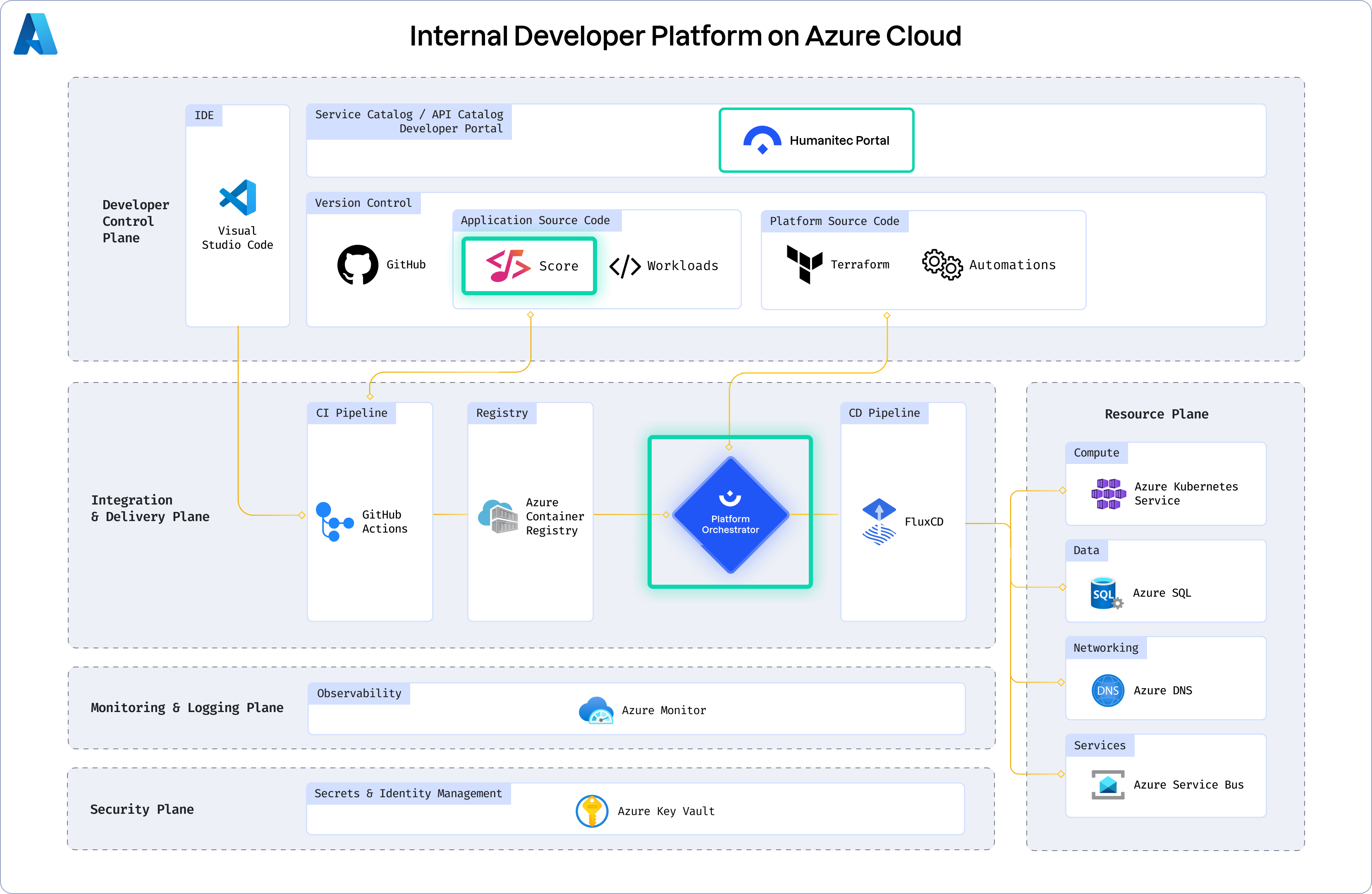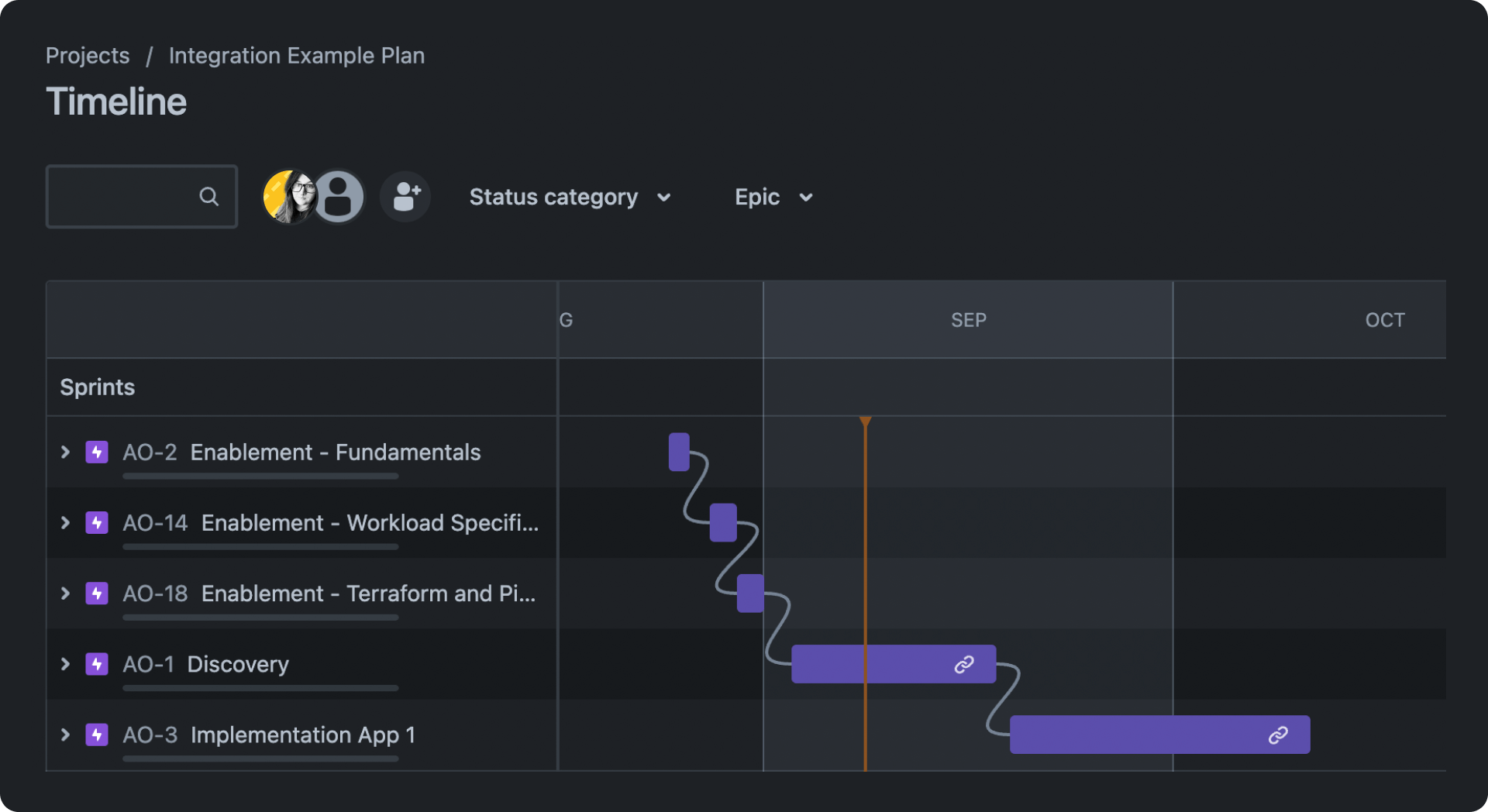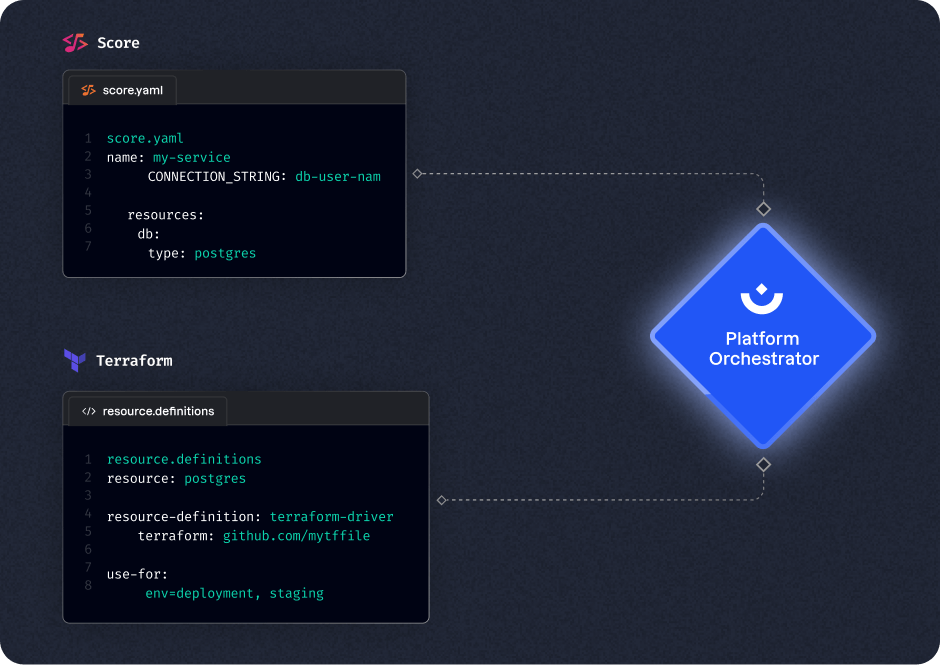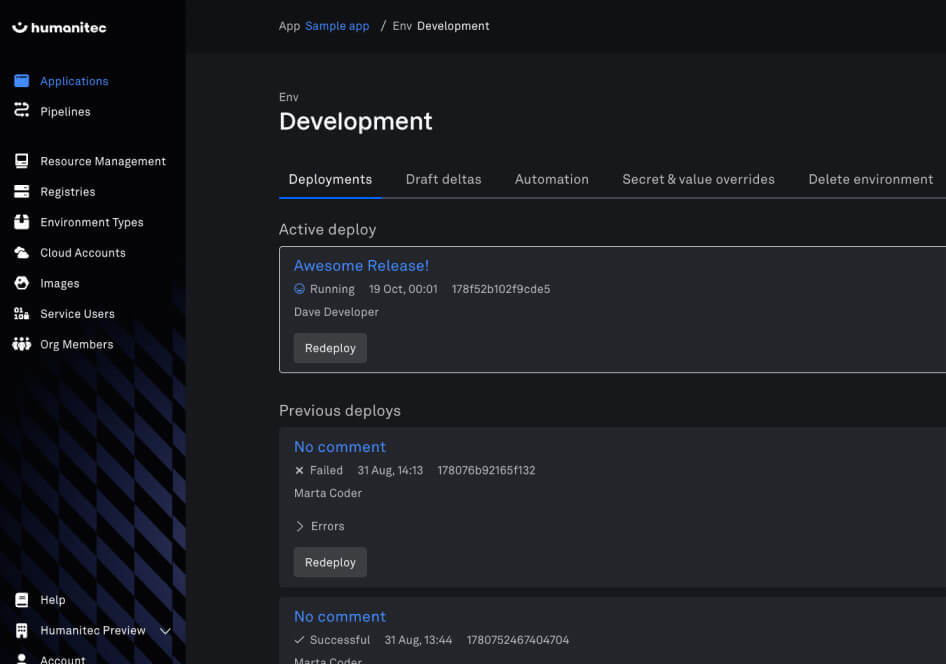










Cut your time to market
overwhelmed 👉 over-performing
Drop hours of manual ticket ops and overwhelmed developers. Standardize all your configs, reduce waiting times and error rates. Slash your lead time.
Blueprints for the enterprise
Try our reference architectures packaged as code. Experience how to build smart abstractions with Score, standardize with the Platform Orchestrator and visualize with the Portal.





There’s so much noise in the platform engineering space. Reference architectures helped us get the design and starting point right.

Emil Kilhage
CTO
We had planned 24 months to get our V1 for the IDP. With Humanitec we had a first MVP after 24 minutes.

Markus Schünemann
CTO
Deployed in no time
Integrate with your setup in days

Integrating with all your tools

Immediate impact
FOR DEVELOPERS
0
mins
Waiting times
4
x
Deployment frequency
FOR PLATFORM ENGINEERS
95
%
Reduction in config files
75
%
Less maintenance overhead
FOR THE ORGANIZATION
30
%
Faster time to market
80
%
Lower TCO for your enterprise-grade Internal Developer Platform















